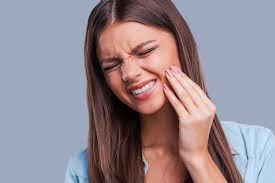How to Prevent Tooth Decay in Children
Tooth decay can be a major problem for children. Frequent snacking or sipping sugary drinks gives mouth bacteria the fuel they need to produce acids that erode teeth and cause cavities.
When
cavities are caught early, they can usually be reversed with fluoride
treatments. The best way to prevent tooth decay in children is to make sure
that they brush regularly, eat a healthy diet and visit the dentist regularly.
Hope this article by B.S Dental Team gives you proper knowledge about take care of tooth decay in children. We are Best Dental lab in India and gives you assurance of genuine information about your queries.
Brush Daily
Tooth
decay develops when germs in the mouth make a sticky covering on teeth called
plaque. These germs feed on sugar in foods and drinks, producing acid that can
damage tooth enamel over time. The damage can lead to holes in the teeth called
cavities.
Children’s
teeth are more likely to get cavities than adults’, but they can be prevented
with proper oral hygiene, a healthy diet and regular dental visits. Tooth loss
can cause problems with eating, speech and the growth and development of
permanent adult teeth.
It
is important to start brushing your child’s teeth as soon as they appear, twice
a day with a soft toothbrush and water. Children under 3 should have an adult
supervise brushing to make sure they don’t swallow toothpaste. Once children
are 3 years old, they can brush their own teeth as long as they spit out the
excess toothpaste and can reach all surfaces of the teeth.
It
is also important to limit how much sugar is eaten and drink and to teach
children to eat “tooth-friendly” foods, such as cheese and chopped vegetables
that require chewing, and whole grains. Drinking tap water can help prevent
decay because most public water supplies contain fluoride, which can reduce
tooth decay by strengthening enamel. If your children live in an area without
fluoridated water, ask your dentist about a fluoride supplement or rinsing with
mouthwash that contains fluoride.
Floss Daily
Flossing
is another often-overlooked part of a healthy oral health routine, but it helps
prevent tooth decay, gum disease and other health issues. Children should floss
daily to remove food, plaque and other debris that a toothbrush can't reach.
Tooth decay is easier to treat in its early stages, before the enamel begins to break down and before a cavity forms. A fluoride treatment at this stage can reverse the decay, strengthening the enamel. If cavities are caught later, more serious procedures like dental fillings or root canals may be required to repair the damage. Advanced tooth decay can also lead to the loss of a permanent tooth, which can have consequences for your child's speech and overall oral development and health in the future.
Help
your children develop good oral hygiene habits by encouraging them to brush and
floss daily, and scheduling regular dental check-ups. Pediatric dentists are skilled
at communicating with children and can help your kids develop positive habits
that will last a lifetime.
Visit the Dentist Regularly
Visiting
the dentist regularly is important for children, not only to demonstrate that
oral health is a priority but also to catch signs of tooth decay before it
becomes a serious issue. During regular checkups and cleanings, fluoride
treatment is applied to prevent the teeth from becoming infected and damaged.
Tooth
decay happens when germs build up on the teeth and start to eat away at the
enamel. This causes holes called cavities. If a cavity is caught in the early
stages before the enamel has become weakened by the bacteria, it can be
reversed with remineralization treatments from your dentist.
If
the cavity reaches a stage where the dentin is affected, your dentist will need
to perform a pulpectomy or a dental filling. If the tooth is so damaged that it
is causing an abscess, your child may need antibiotics or a crown.
Babies
and toddlers can be more susceptible to tooth decay because they have new baby
teeth, which are more porous than adult teeth and often have gaps. If these new
teeth are exposed to sugar and milk, formula or other sugary beverages, the
bacteria can start to erode the enamel and cause decay. Using a toothbrush and
toothpaste with fluoride on a daily basis, eating a low-sugar diet and avoiding
dummies can help to prevent decay in these young teeth.
Eat a Healthy Diet
Tooth
decay can cause pain and infection and may lead to loss of baby teeth. The loss
of these teeth can impact speech, eating and jaw development and increase the
risk of permanent tooth loss later in life. Severe decay can also lead to
problems with nutrition and growth.
Brushing
and flossing alone will not protect your child from tooth decay, but a healthy
diet will. Limiting sugary snacks and drinks will help. Sugary foods and drinks
stay on teeth longer, which feeds bacteria that cause cavities. Encourage your
children to eat foods that are tooth friendly like cheese, vegetables and fruits.
Some medicines can reduce saliva flow and make teeth more susceptible to decay,
so it’s important to talk with your doctor or pharmacist about what you can do
to combat this.
Often
times, the first sign of decay is white spots on the teeth that appear when
minerals are lost from the tooth enamel. If the tooth is caught at this stage,
it is possible to reverse the damage with a fluoride treatment from the
dentist. However, if the decay is allowed to progress to more advanced stages,
cavities will develop that need to be filled with dental fillings.
Kids
learn best from their parents, so model good oral hygiene habits for your
children. Make brushing a family activity and set an egg timer to encourage
everyone to brush for 2 minutes. You can also buy kid friendly toothbrushes
that have fun lights and music to make brushing more appealing for younger
children.
CONTACT US:
Address: SCO-14D,SBP Shopping Square, opposite Mansa Mata Mandir, Sector 126, Chhaju Majra Colony, Kharar, Punjab 140301
You can follow this link also:
BS Dental – Best Dental Lab in Chandigarh
098768 64325

.jpg)


Comments
Post a Comment